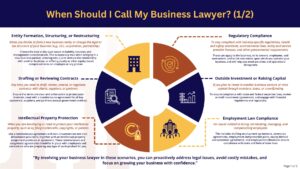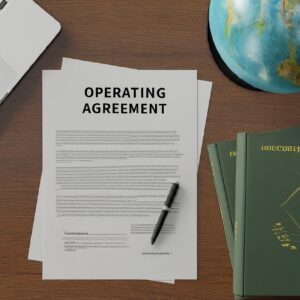Are you considering forming or investing in a Decentralized Autonomous Organization (known in the cryptocurrency world as a “DAO”)? The purpose of this post is to consider DAOs in the broader context of cryptocurrency investment and the paradox around corporate form created by their very existence. I will also propose some domestic and international entity formation options for those wanting to invest or create a DAO as an investment vehicle.
If you don’t know your Bitcoins from your Dogecoins, a word about the concept of decentralized finance (or “defi”) may be helpful.
-
Decentralized Finance (or “Defi”)
Of all the rallying cries of the cryptocurrency movement, the loudest and most persistent is that of “defi.” Among the true believers, it is the first article of faith of cryptocurrency investment and participation. The idea, however, isn’t new. Defi leans heavily, if not accidentally, into the Austrian School of Economics, which places a subjective value on currency and holds that any government involvement, management, or manipulation of currency only leads to, among other things, inflation and wealth inequity.
So, defi offers a currency for the people and by the people – sort of. No government manipulation or even involvement. The creation of a defined limit of the currency for scarcity purposes. The allowance of “equal” participation in the acquisition of the value (the coins, tokens, etc.). The creation of little “constitutions” (called “smart contracts”) in which every participant is treated the same. The elimination of central control and the shifting of the power base to the “group.” Take all that together and you have a crypto version of a free market currency — and you have decentralized finance.
Can these “virtues” of decentralized currency economics also be applicable to investment structure and strategy? Perhaps the better question is whether the ideology of decentralization can be applied to investments and investors. The concept of Decentralized Autonomous Organizations was created to answer this question in the affirmative. But their very existence creates a legal structural paradox that stretches across all borders.
-
DAOs
A DAO is an online community that uses a blockchain to function and transact toward a specific purpose or mission (it can be an investment or something else). These are social and technical communities that virtually gather and pool resources to achieve an aim. In the DAO there is no hierarchy and no central control. Also, there is no corporate form and therefore no bylaws, operating agreements, subscription agreements, or the like. The “rules” of investing and participating, just like for cryptocurrencies, are set out on the blockchain in “smart contracts.” In all, the DAOs achieve an “organization” of purpose that is “autonomous” to the group and “decentralized” in function and operation. Except here is the problem: in most legal jurisdictions, with respect to corporate form and formation, even a nothing is a something, and that something could end up being the wrong thing. Allow me to explain.
Under most legal jurisdictions, an “organization” organized by two or more people for a purpose, without corporate formalities, is a general partnership. Because corporate formalities are not followed in a general partnership, there is no liability protection, and usually organization liabilities will flow “joint and severally” to each of the participants (or “partners”). That is, the general partners are each, as individuals, on the hook for all the partnerships debts, obligations, and liabilities. This is an ominous legal reality for DAOs of any size and their members/partners.
Again, if you are an aspiring participant in a DAO, or if you are considering forming a DAO for a specific aim (all that smart global “autonomous” energy is just too much to resist) here are some considerations in dealing with the decentralized paradox of corporate form:
Do Nothing
Stay true to your revolutionary principles and let decentralization ride independent of corporate form. Embrace the full impact of “cyber-anarchism” and proletarian power inside the zone of DAO investment. Risk joint and several liability on your commitment to the cause. I mean, that is totally ill-advised and stupid from a legal perspective, but much respect for your commitment to the pure ideology.
Go to Wyoming
Everyone should go to Wyoming at least once in their lives, if not many times, to watch the wolves (no wolf-politics please — they are magnificent creatures no matter your politics), the elk, the bears and bear cubs, the eagles fishing, etc. But none of that is relevant here. You should consider Wyoming because in July 2021 Wyoming codified DAOs by applying the limited liability code to a DAO organization. In other words, that “nothing” decentralized crypto organization you so dreamed of building or investing in under Wyoming law can be a “DAO LLC” and receive member/participant limited liability (as well as flow-through tax treatment).
The paradox hasn’t fully gone away, however, because a limited liability code can’t completely apply to a decentralized organization. The Wyoming law attempts to address this fundamental tension by allowing the “smart contracts” to play a role similar to Operating Agreements. Time and application will tell how effective this construct works.
I have one additional point of caution in considering Wyoming, or any other US jurisdiction, for that matter. Though Wyoming should be commended for its visionary efforts to codify DAOs, it is only a state jurisdiction with an overlaying federal government, which has been slow and uncertain on cryptocurrency regulation in the context of other general and relevant issues (i.e., treatment under securities laws, the application of the IRS code, and the like). As such, in Wyoming you may achieve “DAO LLC” status, but you may also be subjecting your venture to the risk of other uncertain and potentially unfavorable federal rule applications.
Go Offshore
By “offshore” we mean, for purposes of this post, those countries looking to attract DAOs, crypto investment companies, and investors. It is interesting to watch the regulatory bodies of such offshore jurisdictions as they attempt to form favorable legislation and regulatory rules and guidelines to the industry generally. Of these countries, Cayman Islands, British Virgin Islands, El Salvador, Singapore, and Gibraltar tend to lead the way. They have not yet solved the structure and limited liability issue specific to DAOs, but they probably will, in time.
One of the novel strategies we use to benefit our DAO entity clients is to use a limited liability offshore entity in a jurisdiction that we are confident will continue to be favorable to the industry (see above). Once this step is achieved, we overlay principles of decentralization (i.e., use “smart contracts” as a basis for governance) to the limited entity. This allows for the “smart contract” algorithms to play their role, for the “autonomous” group to have some level of liability protection because there is a limited entity in place, and to attach to a region where investors are growing confident in a regulatory environment.
We are, in essence, using an offshore strategy to do what the Wyoming code is attempting to do – finding a way to have the best of both worlds, limited liability with decentralized (“smart contract”) management.
There are other relevant details to consider (e.g., tax considerations, management of location, proximity to investors, local regulations, etc.) and the advice of an expert attorney should always be considered when investing in or forming a DAO.
-
Conclusion
Decentralized autonomous investment is here to stay, and the rise of the DAOs is just the beginning and part of a new form of global finance. The conflict of corporate form is real, however, but it can (and should) be overcome with (i) jurisdictions that have visionary regulatory schemes and (ii) creative international practitioners who can fit old corporate notions into the new movement of decentralized investment.


























